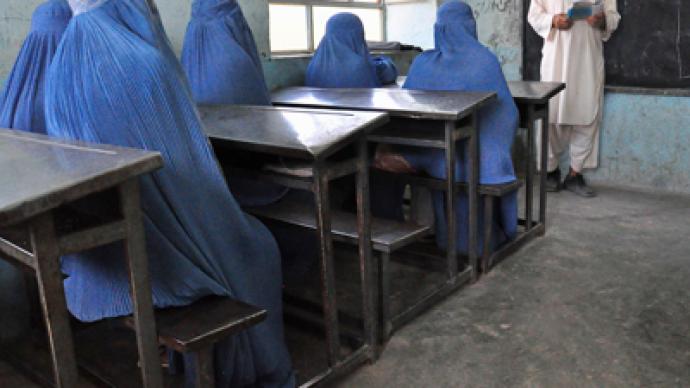'Britain built too much': Cash-strapped Afghanistan may shutter schools and clinics

Dozens of UK-built schools and clinics in Afghanistan may be closed as the government cannot afford to maintain them, a confidential report revealed. They were built for a ‘hearts and minds’ campaign that cost the UK hundreds of millions of dollars.
The report, acquired by the Guardian, was commissioned by the Afghan Helmand Provincial Reconstruction Team (PRT) and US General Charles Gurganus. Members of the British government’s Stabilisation Unit compiled the report this year by examining the construction projects completed in Helmand province, and comparing the costs to the province’s available budget.There is a "mismatch between the value of the assets and the Afghan government's ability to maintain them," the report said. It went on to claim that several of Helmand’s schools and clinics were constructed without proper consultations with local Afghan authorities, and with no plan for long-term sustainability. The British “had built too much” in Helmand in order to win the “hearts and minds” of Afghans, the report said. According to a UN report, Afghanistan’s southwestern Helmand province is the country’s largest single region, and the world’s biggest producer of opium.Since 2009, the British helped build 15 health centers and 26 new schools, and restored and reopened 86 older schools in Helmand."We didn't think about how the Afghans would pay for it. But it was understandable. We wanted to show them what we could do for them, but without regard for sustainability," one official told the Guardian.Senior UK officials are currently working to identify which institutions can closed, and which are vital and must remain open. The exact number of closures needed is not yet known, but the report predicted that dozens of facilities in the province will be affected.The closures will likely come as a severe disappointment to the 1.4 million Afghans residing in Helmand. The UK's ambassador to Afghanistan Sir Richard Stagg told the Guardian that the overages were a result of Britain’s desire to show Afghans that they were "serious" about helping them: "We focused on the physical and visible rather than the human capital which would manage the country in the longer term.”"The challenge for Afghanistan now is not a lack of roads and school buildings. It is a lack of capacity in its governmental structures in particular to run the country,” he said.












